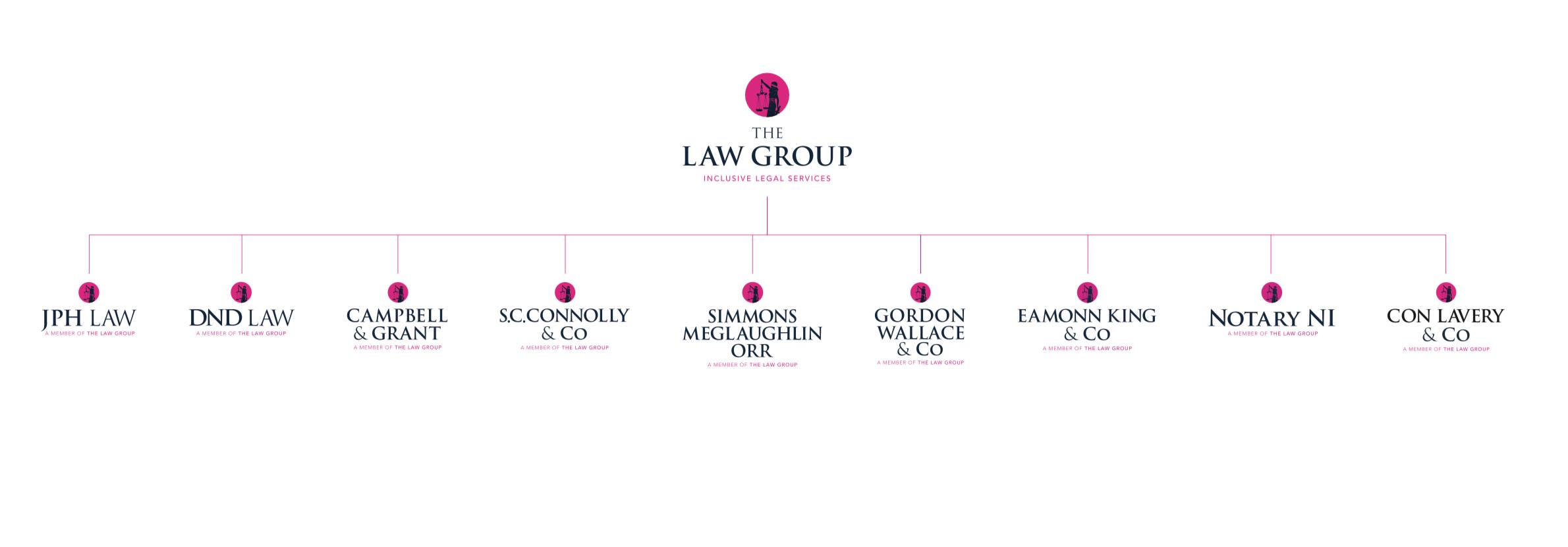Notary Public Services FAQs
Our Mr Kevin Newry is a Notary Public (Notary Public Solicitors Newry) and is available by appointment to undertake the functions of a Notary
- A Government Official in the country of origin has to declare the signature of the Notary Public as true and genuine.
An apostille (French word meaning notation) is a standard certification provided under The Hague Conference on Private International Law: 1961 Convention Abolishing the Requirement of Legislation for Foreign Public Documents for the purpose of authenticating documents for use in foreign countries. An apostille is a form of authentication accepted in countries which have signed the 1961 Hague Convention.
This Convention abolished the requirement of diplomatic and consular legalization for public documents originating in one Convention country and intended for use in another. An apostille is often needed in adoptions, extraditions, and certain business transactions. The apostille is formatted in numbered fields that allow data to be understood by the receiving country regardless of the official language of the issuing country. With the apostille, the document is entitled to recognition in the country of intended use, and no further authentication or legalization by the embassy or consulate of the foreign country where the document is to be used is required.
Additional items for overseas customers forming companies in the United Kingdom, U.S.A. or offshore. These are legalisation (Apostille) of documents by the Foreign and Commonwealth office for use by banks and other authorities overseas that support the Hague Convention.
Before certain corporate documents can be used overseas, document authentication may be necessary. It is usually required where overseas officials are not able to determine on sight the authenticity of United Kingdom documents. To check the requirements, contact the relevant authorities in the country concerned or their overseas representatives. When a document is to go to a foreign country, it is often necessary to have the notarization or official certification authenticated. Some countries call this an apostille. In 1961 many nations joined together to create a simplified method of “legalizing” documents for universal recognition. Members of the conference, referred to as the Hague Convention, adopted a document referred to as an Apostille that would be recognized by all member nations.
If the country belongs to the 1961 Hague Convention Abolishing the Requirement of Legalization for Foreign Public Documents, the apostille is used. The Convention provides for the simplified certification of notarized documents by use of a special form called an “apostille” in certifying the document. The apostille does not need to be ribboned onto the document being certified. With the certification by the Hague Convention apostille, the document is entitled to recognition in the country of intended use, and no additional authentication or legalization is required.
Note: The “Apostille” attests to the validity of the signature of the notary public, county official, but not of the underlying signature nor of the contents of the document.
The Hague Convention applies “to public documents which have been executed in the territory of one Contracting State and which have to be produced in the territory of another Contracting State.” The Convention does not apply to domestic filing of documents. “Apostilles” will not be issued for documents intended for use within the United Kingdom.
A simplified certification of public (including notarized) documents used in countries that participate in a Hague Convention. This simplified form contains numbered fields (which allow the data to be understood by all participating countries regardless of the official language of the issuing country). The completed apostille form certifies the authenticity of the document’s signature, the capacity in which the person signing the document has acted, and identifies the seal/stamp which the document bears. Documents needed for intercountry adoptions require the attachment of an apostille (rather than authentication forms) if the foreign country participates in the convention.
Once a document has been notarised by a Notary Public, and if it is to be used overseas, it may need to be apostilled. This means that the Notary’s signature and seal are certified by the U.K. Foreign and Commonwealth Office. The Foreign & Commonwealth Office will then attach an apostille or a Legalisation Certificate to the document. Once a document has been notarised and apostilled, it then may need to be legalised by the Consulate of the country in which it will be used, if the country is not party to the Hague Convention.
All Apostille certificates will look the same for all the countries you send the Apostille to. There is no difference between an Apostille which will be used for Spain and an Apostille for Germany. Similarly, there is no difference between an Apostille for a Birth Certificate and an Apostille for a Marriage Certificate, or a Power of Attorney or a Court Divorce Decree. The Apostille will look the same. However, a few countries have a different requirement other than an Apostille, and your document would receive a Legalization Certificate instead. Our office will obtain necessary county government Notary Authentication first, then the Apostille.
We have years of experience providing Apostille services to the public. We offer you the convenience and knowledge to obtain the Apostille on your documents from the government without the need for you to travel to the government offices. We save you time, money, and potentially incorrect document presentation which could cause rejection. We go to the government complete any application, pay the Apostille fees Our service is both cost-effective and timesaving.
Prior to the introduction of Apostille certificates the burden on international courts and authorities to judge foreign documents as authentic was quite considerable. On the 5 October 1961 the Hague Convention abolished the requirement of legalisation for foreign public documents. The Convention reduces all of the formalities of legalisation to the simple delivery of a certificate in a prescribed form, entitled “Apostille”, by the authorities of the State where the document originates. This certificate, placed on the document, is dated, numbered and registered. The verification of its registration can be carried out without difficulty by means of a simple request for information addressed to the authority which delivered the certificate.
If information is filed properly and appropriate fees are paid, the registrar will issue a Certificate of Incorporation. For a public company, a Section 117 certificate will also be issued to indicate that the registrar is satisfied that certain requirements relating to share capital have been met. Ideally, a Certificate of Incorporation will have a so-called Apostille attached to it. An Apostille is a certificate/confirmation issued by a competent authority of the country of incorporation and in this case guarantees the authenticity of the actual Certificate of Incorporation. To have a Certificate of Incorporation Apostilled ensures that it will be recognised as valid outside of the country of incorporation.
Purpose: the Hague convention abolishes the requirement of diplomatic and consular legalization for public documents originating in one Convention country and intended for use in another. Documents issued in a Convention country which have been certified by a Convention apostille are entitled to recognition in any other Convention country without any further authentication. Such recognition is an obligation on the part of any country in the convention to the other countries party to the Convention and the federal courts and state authorities have been alerted to this obligation. Consular officers in Convention countries are prohibited from placing a certification over the Convention apostille.
We specialises in the legalisation of overseas and UK corporate documents in the UK, USA and offshore. We can notarise and Apostillise any company documents. We can also Apostillise any other documents but they will need to be notarised by your local notary, as he will need to witness your signature before we can Apostillise the documents. Legalisation is the process of authenticating a signature, seal or stamp appearing on a document. The signatures or seals of British Public officials (such as notaries and registrars) or an overseas Apostille (authentication by a federal official) appearing on a document will need to be authenticated and legalised before the documents can be accepted in an official capacity in a jurisdiction that is not party to the Hague Convention.
If you have a document which you want legalized for use in another Convention country, the Convention certification called an apostille must be affixed to the document by a competent authority. The apostille is a pre-printed form prescribed by the Convention.
Procedure: these vary from country to country in the United Kingdom legalisation is carried out by the Legalisation department of the Foreign and Commonwealth Office.
This is the attestation by a Notary Public that the signature appearing on the document is true and genuine. In the legalisation process, this is usually completed in the country where the document originates.
The British Foreign and Commonwealth Office has to declare the Apostille as true and genuine prior to Legalisation.
The embassy of the country where the document is to be presented can now declare and accept the signature, seal or stamp appearing on the document as genuine.
Documents sent to member nations, completed with an Apostille at the state level, may be submitted directly to the member nation without further action. Notarisation is a formality often required for documents which are to be used overseas, or for certifying document copies. Once a document has been notarised by a Notary Public, and if it is to be used overseas, it may need to be apostilled. This means that the U.K. Foreign and Commonwealth Office certify the Notary’s signature and seal. The Foreign & Commonwealth Office will then attach an apostille or a Legalisation Certificate to the document. Once a document has been notarised and apostilled, it then may need to be legalised by the Consulate of the country in which it will be used, if the country is not party to the Hague Convention.
A Notary is a public officer, often also a solicitor, who has the authority to witness and attest to certain documents (such as deeds, agreements, powers of attorney), and so makes them official and legal in most countries in the world. The signature and official seal of a Notary are the evidence to the authenticity of writings, which make documents recognised internationally.
You will need a Notary if: you need authorisation of documents and information that will be used in foreign countries, you need legalisation of certain documents, you need translation of documents for use abroad, you want to buy a property abroad, you have business overseas or your business is exporting its products or you are involved in litigation in foreign Courts.
All countries require documents to be notarised. For most of the documents going to other countries, an Apostille has to be obtained from the Foreign & Commonwealth Office. Certain countries also require a legalisation from the Consulate.
The purpose of the Convention is that it abolishes the requirement of diplomatic and consular legalization for public documents originating in one Convention country and intended for use in another. Documents issued in a Convention country which have been certified by a Convention apostille are entitled to recognition in any other Convention country without any further authentication. Such recognition is an obligation on the part of the United States to the other countries party to the Convention and the federal courts and state authorities have been alerted to this obligation. Consular officers in Convention countries are prohibited from placing a certification over the Convention apostille.
If you have a document which you want legalized for use in another Convention country, the Convention certification called an “apostille” must be affixed to the document by a competent authority. The apostille is a preprinted form prescribed by the Convention.
The practice of a Notary has two significant differences from that of a Solicitor (although most Notaries are also Solicitors). First, his duty is to the transaction as a whole and not just to one of the parties. A Notary may act for both parties to a transaction as long as there is no conflict between them and his duty is to ensure that the transaction they conclude is fair to both sides. Secondly, a Notary identifies himself on documents by the use of his individual seal. Such seals have historical origins and are regarded by most other countries as of great importance for establishing the genuineness of a document. A Notary’s seal will be registered with the Foreign and Commonwealth Office and with many foreign embassies and consulates. Procedures exist for the seal to be further authenticated – a process called legalisation.
We delivers, waits and collects documents in person at the British Foreign & Commonwealth Office (FCO) and appropriate embassy. Apostille a competent company specialized in arranging official and highly recognised government notarization.



